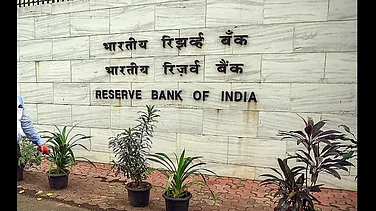From this month onwards, you will not have to wait for weekdays for your salary or pension to be credited into your account if the salary due date falls on a weekend. According to the latest RBI rules, customers can use bank facilities for salary, pension, and EMIs even on Saturdays and Sundays.
This is because the Reserve Bank of India (RBI) has amended the rules of the National Automated Clearing House (NACH), as announced by RBI Governor Shaktikanta Das in June. The new rules, however, come into force from this month. Accordingly, bank customers can now avail of the benefits of 24x7 Real Time Gross Settlement (RTGS) and NACH on all days of the week with effect from August 1.
According to the new rules brought in by the RBI, NACH will be functional for all days of the week. Earlier, it was functional only on weekdays. This has come as a welcome move bringing much more convenience for bank customers across the country.
NACH is a bulk payment system that is responsible for the payment of salaries, pension, dividends, EMIs. It also helps in facilitating bill payments like electricity, telephone, and cooking gas. Moreover, payments for mutual funds and insurance are also made using the NACH system. With this new change, people can now make any kind of payments pertaining to salary, pension, EMI payments even on weekends.
Apart from this, the RBI had also earlier changed the rules for ATM withdrawals, raising the interchange fee for financial transactions to help banks meet the cost of ATM deployment and maintenance. Accordingly, the rates were increased from Rs 15 to Rs 17 per transaction. The new rates also come into force from this month. This fee is applicable when a bank customer withdraws cash from the ATM of another bank. This is usually applicable after a certain number of free transactions are exhausted. The free transactions are available at both home branch ATMs as well as ATMs of other banks.
The number of free transactions is limited and once the user surpasses the limit, an interchange fee is charged. Now, with the new rules in place, transactions beyond the free ones would cost more.
The new rules were announced two months ago, in June. The rules were framed based on the recommendations of a committee set up by the Reserve Bank of India (RBI) in 2019.































